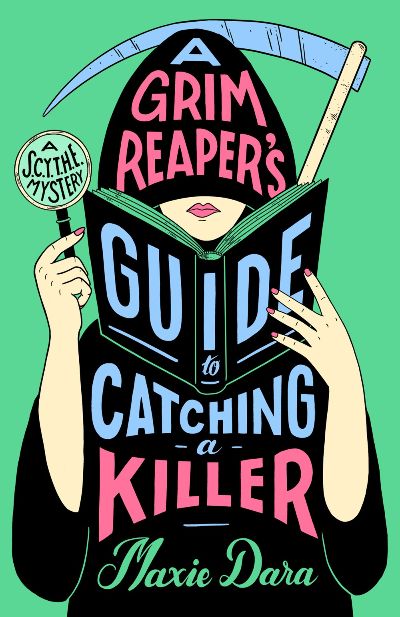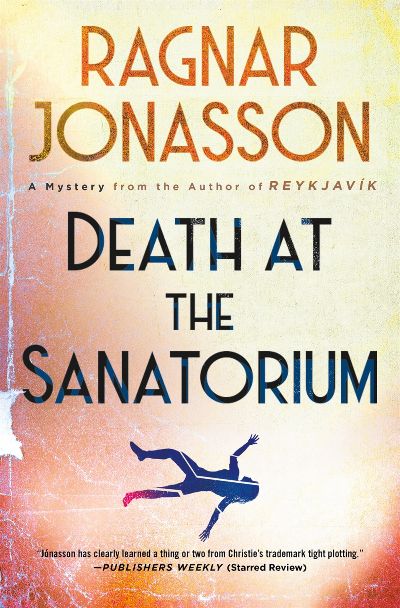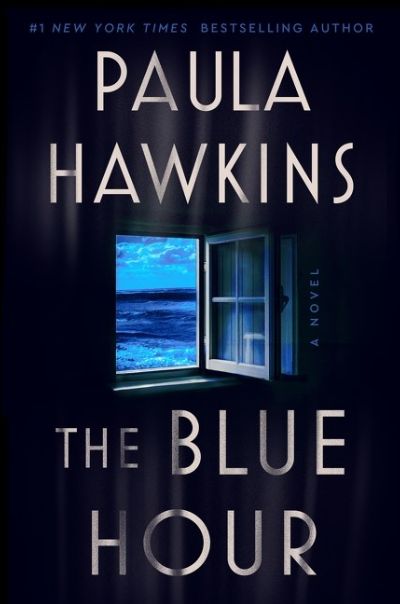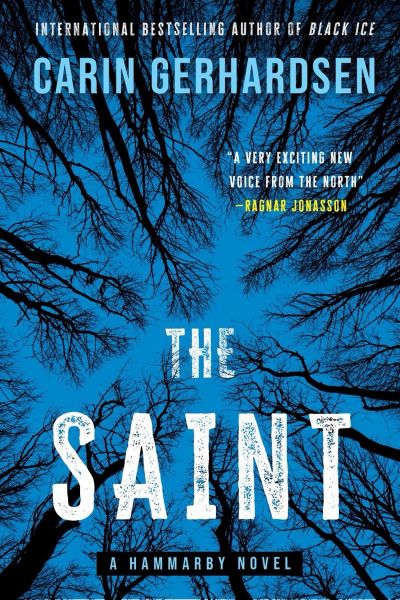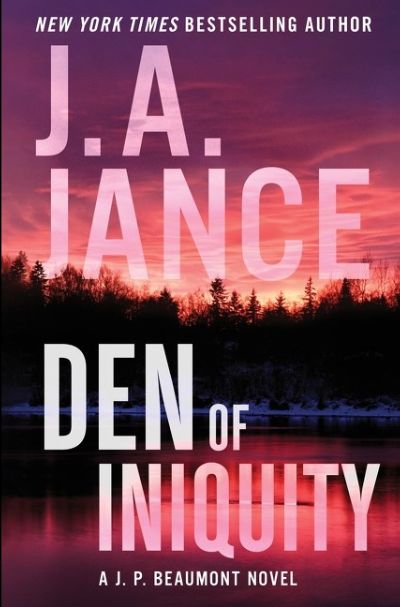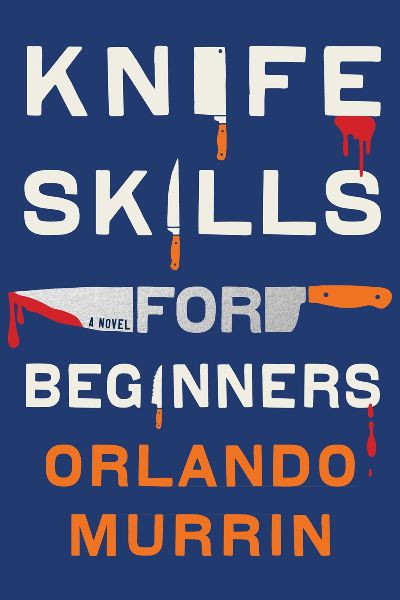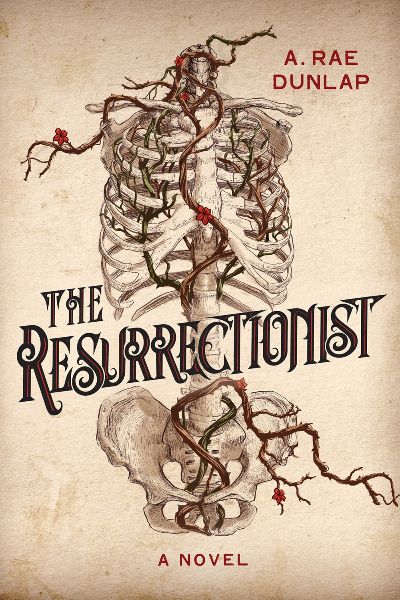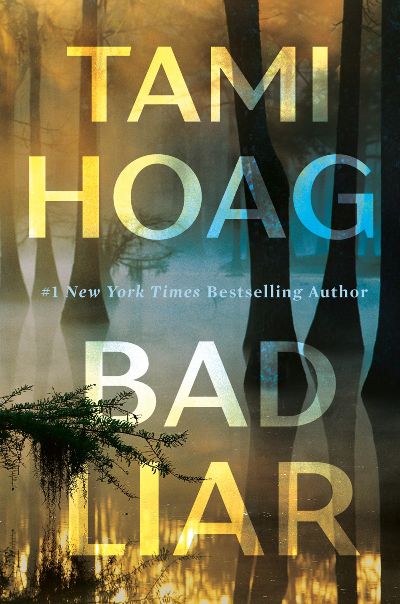Middle-aged, mid-divorce (although she is still in love with her husband), and mid-pregnancy, Kathy Valence is a no-nonsense, shoot-from-the-hip type of character. She keeps busy working for S.C.Y.T.H.E. (Secure Collection, Yielding, and Transportation of Human Essences), helping transport the souls of the recently departed on to their next phase, until the soul of one of her clients, hip and happening 17-year-old DJ Conner, gets misplaced. Conner insists he was murdered by someone at S.C.Y.T.H.E., and that it is up to Kathy to track down the murderer and find Conner’s soul. All within forty-five days, or else he’ll become a ghost, destined to wander the Earth (no pressure!). What’s so lovely here are the overlapping needs of the characters. Kathy, whose fears and anxieties hold her back from accepting love. Simone, Kathy’s husband, whose only desire is to be allowed to love Kathy and their baby. And Conner, who wants to identify his murderer, be saved by Kathy, and find the love he missed on Earth. Poignant and pleasing, this successful supernatural mystery will long be remembered.
Review
An excellent standalone that reaches back into Iceland’s history, prying open a past many would like to keep hidden. At the center of the story is criminology student Helgi Reykdal, who is back from studies in the UK and ready to join the Reykjavik police. Helgi is finishing his dissertation, which is focused on the famous murder of a nurse at an old, little-used Icelandic sanatorium some forty years ago. In all, there were six suspects at the sanatorium and two detectives. The case was never truly closed, and Helgi uses his dissertation to quietly investigate the remaining suspects, encountering only suspicion and hostility along the way. It’s a tight cast, and Helgi keeps his inquiry moving rapidly between 2012, the present day action; 1983, when the murder was committed; and 1950, when the sanatorium was home to tuberculosis patients. Despite the seriousness of the story, and some horrific depictions of domestic abuse, Helgi’s passion for Golden Age mysteries lends the novel some unexpected humor and fun. Highly recommended for a large swath of crime-fiction readers.
Like Thoman’s also excellent I’ll Stop the World, this will be a great crossunder, meaning that it’s written for adults but will also find young adult appeal. Also like the previous book, it strongly features the supernatural affecting teenage characters in an authentically written relationship. Madelyn Zhao has moved to East Henderson, PA, to try to find out what happened to her disappeared cousin who worked for a local real-estate developer, an aggressive character who basically runs the town. At her job as choir teacher at a high school, she meets and begins to fall for Alex, the dishy Spanish teacher. We also meet East Henderson teenagers Bas and Angie, BFFs who are now, at Angie’s insistence, ghosthunters. Living with her devastated dad since her mom took off, Angie hears singing in the shower, only nobody’s there. How Madelyn and the teens interact, and the sleuthing they each undertake to get to the bottom of goings on in this sinister-tinged town, are both touching and gripping.
A beautifully rendered story of deceit and ambition, lies and mysteries. Well-known artist Vanessa Chapman lives on an island off Scotland that’s accessible only 12 hours a day, during low tide. When the sea returns, it creates its own, albeit temporary, closed circle. Twenty years ago, Vanessa’s sometime husband disappeared, which was a bit of a surprise, although he seemed to regularly come and go. When Vanessa eventually dies as well, she leaves her estate in the hands of the Fairburn Foundation; young curator James Becker; and Grace Haswell, a doctor who is the executor of Vanessa’s estate, companion of twenty years, and perhaps lover. It’s all antipathy and snark between James and Grace until a discovery comes to light that forces a reexamination of power and ambition. A poignant and thoughtful examination of a life and a death.
The fourth in Gerhardsen’s best-selling Hammarbyeries reveals a horrible history in a Swedish town that on the surface seems to revolve around soccer games, poker nights, and kindness to those less fortunate. The first break in the idyll, and the opening of the book, is the shooting of Sven-Gunnar Erlandsson, a man whom everyone knows as a tireless soccer coach, helper of the homeless, and devoted father. If the investigators begin to think that maybe he’s a little too saintly, well, that’s probably just their long years encountering the worst of society. As the police look in ever-widening circles at the dead man’s family, friends, and acquaintances, it starts to seem like he might have been the only good person around, surrounded as he was by dark secrets that are slowly and shockingly revealed. (Even the last sentence drops in a twist.) Every character, including those who are missing for years, is given a fully rounded personality here, and it’s quite the large cast. Gerhardsen’s masterful plotting takes us around multiple metaphorical corners, possible killers, and surprise victims in her character- and emotion-driven saga. Maybe it’s time to get back into Scandi noir–and you don’t have to have read the previous books in the series to enjoy this one
After a long gap, Jance brings back former Seattle Homicide Detective, now Private Investigator, J.P. Beaumont, and, like a fine wine, Beaumont ages well. He lives in Bellingham with his wife, and when his grandson arrives out of nowhere and wants to live with them to finish school, Beaumont realizes that his family is not living the idyllic life he thought. His daughter and her husband are separated, his son-in-law has a new girlfriend, and the living arrangements were too much for his grandson to handle. When a friend from his past asks for help, he can’t say no. A death ruled accidental due to a fentanyl overdose was officially closed by the authorities, but those who knew the victim say he would not touch drugs. As Beaumont investigates, he discovers that there are more “accidental” deaths, and the truth is more complicated than he can imagine. It doesn’t help that he’s also investigating the new girlfriend who broke up his grandson’s parents, and records show she is not who she claims to be. All of this plays out in February 2020, as the world is about to shut down, creating an impending doom in which the reader knows what is about to happen and longs to warn Beaumont and his family. Jance’s mysteries are like comfort food, guaranteeing readers a great story with authentic and realistic characters that will leave them wanting more after the last bite.
Cooking as entertainment, from reality shows to competitions to documentaries, couldn’t be more popular, and Murrin’s decision to set Knife Skills in the heart of a London cooking school is a smart one. Located in an old mansion in the super-posh Belgravia neighborhood, the school—which is residential—offers week-long classes for small groups of a dozen or so. The students, a bit of an odd crew, are super excited at meeting their instructor Christian Wager—he’s sort of a Gordon Ramsay type. When Christian shows up, one arm in a cast, and announces that he’s passing the class on to his good buddy Paul Delamare, the class groans in disappointment. Paul isn’t a celebrity like Christian, but he’s a darn good chef, and slowly the class warms up to him. Until there’s a murder as gruesome as you can imagine (hint: cleaver) and the class rather ghoulishly wants to continue the course—corpse be damned!—and with Paul the number-one suspect. From here, the book spirals out—there are red herrings galore, and nearly everyone seems to be a suspect at one point or another. Lots of fun to be had, especially with the characters Murrin creates.
As the third son of a modestly landed family, James Willoughby has been told from an early age that he must earn a living befitting his station. Being of “a diminutive stature,” James decides the military is not for him. Nor is the Church of England an appealing option. Despite his family’s opposition, the young man abandons his clerical studies at Oxford and heads north to Edinburgh to become a physician. It’s 1828, the Age of Enlightenment, and the Scottish city is a “shining beacon of medical discovery.” But James quickly learns that if he wants to develop anatomical knowledge and surgical skills, he must join one of the private schools in Surgeon’s Square. Unable to afford the additional tuition, James makes a bargain with his professor’s secretary and dissectionist, the charismatic Aneurin “Nye” MacKinnon, to serve as a lookout to prevent possible grave robbing in the Greyfriars kirkyard (graveyard) beneath James’s chamber window. The naive student soon discovers that he is aiding a gang of body snatchers who steal fresh corpses from churchyards for anatomical study at the medical schools. Nye explains to a horrified James that he is a Resurrectionist: “Our motivation is not in the value of the bodies we steal, but in the second life we give them.” Bedazzled by Nye’s scientific passion (and his dark sexiness), James plunges into this illicit, gritty underworld. However, their rivals in the body-snatching game, the sinister Burke and Hare, will murder anyone to corner the corpse market. Mixing a macabre gothic mystery with a sensitive coming-of-age tale and a touching queer romance, Dunlap has written an exciting, well-researched debut historical adventure. Bizarre, authentic details, like the mortsafes, or cages, that grieving families installed to protect the graves of their loved ones, make for an unforgettable read.
I could have sworn that Tami Hoag had an Oprah Book Club pick years ago. That’s what spurred me to pick this up–I usually like Oprah’s picks, and if one of those authors has something new, I’m intrigued. It seems I was wrong, but the happy mistake led me to meet the steadfast Sheriff’s Office Detective Annie Broussard and watch her doggedly investigate three maybe-interlinked crimes in her small south Louisiana town. Local fishermen find a body in the water, its face shot off. There are soon two possibilities as to whom it could be, as two local men are found to be missing. One, Marc Mercier, is a former high-school football star in a town where the sport is everything, who’s returned from time away to his doting mother’s embrace. His Yankee wife is none too happy to be stuck in “Ass Crack, Louisiana,” and might be getting “comforted” by a suave coworker. Also nowhere to be found is Robbie Fontenot, a doctor’s son who has gone off the rails due to Oxycontin addiction. His own doting mother believes he’s on the mend and is desperate for someone to care about where he could be, but not having much luck till she storms the sheriff’s office and meets Annie. Rural loyalties, mothers’ love, sibling rivalries, a hefty dose of Cajun language and slang (glossary provided), and swampy humidity steaming off the pages combine to make a memorable and affecting read. Oprah, take note!
The third volume in Rosen’s Evander Mills series is the most powerful to date, going deeper into the community “Andy” Mills has created for himself while taking on the power of secrecy in post-World War II San Francisco. Former cop, currently a PI—without the documentation—Andy is called upon in this book to locate Howard Salzberger, a queer bookseller who has a little brown book that documents all of his customers, and who has loose ties to Andy. Howard has a book he is planning to sell—perhaps about the Mafia?—when he suddenly disappears. While this is historical fiction, set in the ’50s, readers of Rough Pages will surely reflect on the harassment and persecution of librarians, teachers, and students who seek or make available LGBTQ content in present-day America.

